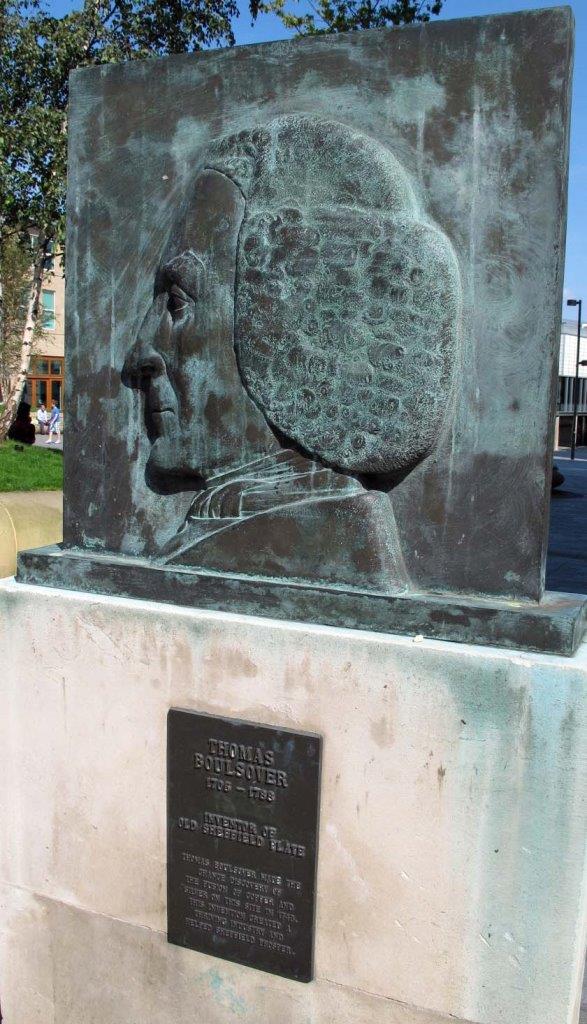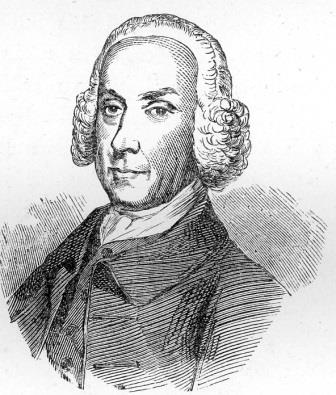
Boulsover plaque in Tudor Square, Sheffield. © Geoffrey Tweedale, 2012


Born in Ecclesfield and baptized on 18 October 1705, Thomas was the son of Samuel and Margaret Bolsover. His father was a farmer and cutler. Thomas Boulsover was apprenticed in 1719 to Joseph Fletcher, cutler, in Sheffield (Hatfield, 1974). He became a Freeman in 1726 and was assigned a mark. In that year, he established a cutlery workshop in Norfolk Street and married Hannah née Dodworth (1706–1772).
Boulsover’s claim to fame was his fortuitous discovery – when repairing a knife handle composed of silver and copper – that the fusion of a layer of silver to a block of copper created an alloy that could be rolled and worked in sheet form. Silver articles could henceforth be produced at a fraction of the cost of solid silver. Thus in 1743 was born ‘old Sheffield Plate’, which launched Sheffield’s fine metalwork and silver industry. Boulsover began the manufacture of fused-plate ‘silver’ buttons and buckles and this business soon eclipsed his cutlery trade. However, after the mid-1750s another cutler, Joseph Hancock, exploited the invention of fused plate (which Boulsover had not patented) to make an even more popular product: holloware. Nonetheless, by the end of the 1750s Boulsover was a prosperous country gentleman living at Whiteley Wood Hall, a seventeenth-century property on the outskirts of Sheffield. His workshops in Norfolk Street also expanded.
In 1762, Boulsover made another contribution to the Sheffield metal trades: the development of rolled cast steel for saws. He built what was probably the world’s first saw factory with workshops, workers’ cottages, an enlarged dam and improved water-wheel on the River Porter, below Whiteley Wood Hall (Barley, 2014). According to Hunter (1875), Boulsover ‘afterwards said that when he began to build, his purse had no neck to it, and when he left off it was all neck. His bag of gold was empty’. It has been suggested that this prevented him reaping the full benefit of ‘Sheffield Plate’. But the directory entry in 1774 for Thomas Boulsover & Co suggests that he had wider interests: as a manufacturer of saws, fenders, edge tools, cast steel, and emery in Sycamore Street – possibly at the premises of John Wilson (Sheffield Daily Telegraph, 9 August 1879).
Thomas Boulsover died at Whiteley Wood Hall on 9 September 1788 and was buried in St Paul's churchyard. Boulsover & Co continued under the ownership of the Mitchell and Hutton families (into which his daughters had married). A commemorative monument can be seen in Tudor Square, next to Sheffield Central Library.





